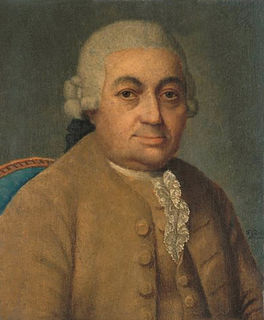A Quote by Rajneesh
The real master is only a presence. He has no intentions of being a master. His presence is his teaching. His love is his message. Every gesture of his hand is pointing to the moon. And this whole thing is not being done, it is a happening. The master is not a doer. He has learned the greatest secret of life: let-go. The master has drowned his ego and the idea of separation from existence itself.
Related Quotes
Some would define a servant like this: 'A servant is one who finds out what his master wants him to do, and then he does it.' The human concept of a servant is that a servant goes to the master and says, 'Master, what do you want me to do?' The master tells him, and the servant goes off BY HIMSELF and does it. That is not the biblical concept of a servant of God. Being a servant of God is different from being a servant of a human master. A servant of a human master works FOR his master. God, however, works THROUGH His servants.
The love of a dog for his master is notorious; in the agony of death he has been known to caress his master, and everyone has heard of the dog suffering under vivisection, who licked the hand of the operator; this man, unless he had a heart of stone, must have felt remorse to the last hour of his life.
Amid the cheering of the crowds, he hardly heard his master's voice, but he saw the familiar head and shoulders, and the bright flag he was waving. He raced toward the seven-foot fence; without apparent effort he rose in the air and cleared the top with a good hand-breadth to spare; then dashed up to his master that he loved, and gamboled there and licked his hand in heart-full joy. Again the victor's crown was his, and the master, a man of dogs, caressed the head of shining black with the jewel eyes of gold.
Often nothing keeps the pupil on the move but his faith in his teacher, whose mastery is now beginning to dawn on him .... How far the pupil will go is not the concern of the teacher and master. Hardly has he shown him the right way when he must let him go on alone. There is only one thing more he can do to help him endure his loneliness: he turns him away from himself, from the Master, by exhorting him to go further than he himself has done, and to "climb on the shoulders of his teacher."
The master in the art of living makes little distinction between his work and his play, his labor and his leisure, his mind and his body, his information and his recreation, his love and his religion. He hardly knows which is which. He simply pursues his vision of excellence at whatever he does, leaving others to decide whether he is working or playing. To him he's always doing both.
As in the presence of the Master, the Servants are equall, and without any honour at all; So are the Subjects, in the presence of the Soveraign. And though they shine some more, some lesse, when they are out of his sight; yet in his presence, they shine no more than the Starres in presence of the Sun.
Brotherly love is not a tangible commodity. We cannot touch it or weigh it, smell it of taste it. Yet it is a reality; it can be creative, it can be fostered, it can be made a dynamic power. The Master who has it in his Lodge and his brethren will find that Lodge and brethren give it back to him. The Master too worried over the cares of his office to express friendliness need never wonder why his Lodge seems too cold to his effort.
A real Master is not a teacher: a real Master is an awakener. His function is totally different from a teacher; his function is far more difficult. And only very few people can stay with a Master because to wake up after millions of lives is not an ordinary feat; it is a miracle. And to allow somebody to wake you up needs great trust, great surrender.





































